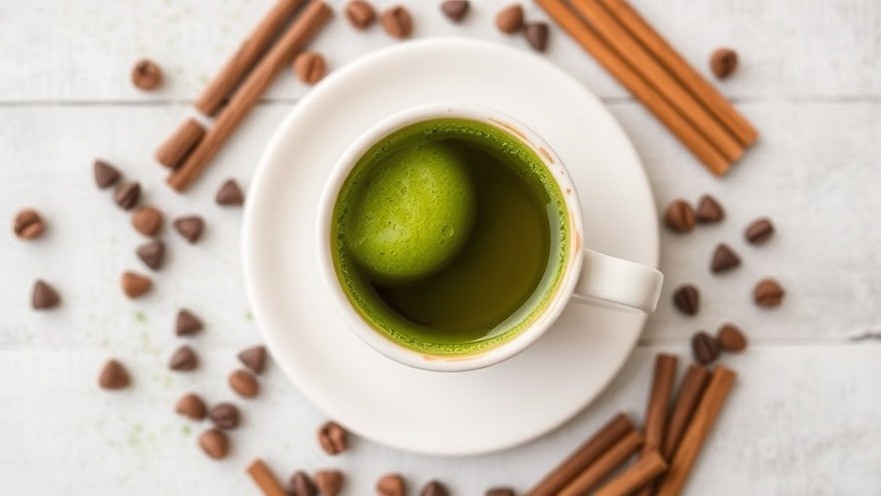
Matcha vs Coffee: The Showdown for Your Morning Brew
In today’s wellness-obsessed world, coffee has long held the crown as the go-to beverage for a morning boost. However, health enthusiasts are taking a sip of a different drink: matcha. But is matcha really healthier than coffee? In a captivating discussion featuring Professor Tim Spector, a leading epidemiologist, and Chef Cod, a master of matcha, we delve into the health benefits, taste profiles, and cultural significance of both drinks.
In the exploration of 'Is Matcha Healthier Than Coffee?', we delve into key insights presented by experts, illuminating the nuances that distinguish these two beverages.
The Power of Polyphenols: What Are They and Why Do They Matter?
Both coffee and matcha are rich in polyphenols, plant compounds renowned for their antioxidant properties that support cellular health and may lower the risk of chronic diseases. Professor Spector notes that the polyphenol levels in matcha are similar to those in coffee, making both beverages formidable supporters in disease prevention. So, whether you’re sipping a cup of joe or a bowl of vibrantly green matcha, you’re giving your body a good dose of health benefits.
Sleep Quality: The Matcha Advantage
Unlike coffee, which can leave you buzzing and restless, matcha contains the unique amino acid L-theanine. This compound promotes relaxation without drowsiness, allowing for a calm, focused energy. Professor Spector highlights that while both drinks have caffeine, the nuanced combination of caffeine and L-theanine in matcha gives it a gentle energy lift, ideal for those seeking to avoid late-night jitters.
A Nutritional Powerhouse: What’s in Your Drink?
Comparing the nutritional profiles reveals some interesting findings. Matcha is a super-concentrated form of green tea — you’re not just steeping leaves and throwing them away; you’re consuming the whole powdered leaf, leading to higher fiber content. A single serving of matcha contains roughly 60-90 mg of caffeine, along with substantial fiber, healthy fats, and vitamin C, while also providing a more significant boost of omega-3 fatty acids than coffee. So, when it comes to fiber content and certain nutrients, matcha takes the lead.
The Science Behind the Sip: What Research Says
Although both drinks offer beneficial properties, research on matcha is still developing. As Professor Spector points out, current studies suggest it may aid in cognition and reducing stress. Furthermore, there are indications that moderate matcha consumption could support metabolic health, although expansive epidemiological data are yet to be established. Nevertheless, the promising results show that exploring this green trend is wise, especially for those looking to diversify their health habits.
Social Buzz: The Cultural Shift from Coffee to Matcha
As the West rapidly adopts matcha, many are drawn to its rich history. Originating from Japan, matcha was traditionally consumed by Buddhist monks for enhanced meditation clarity. Chef Cod, with a background steeped in culinary arts, showcases how this ancient beverage has transformed from ceremonial tea to trendy café must-have. However, beware! The sweetness lurking in flavored matcha lattes could mask many health benefits, so aiming for high-quality, pure matcha is essential.
The Longevity Connection: Which Brew Supports Healthy Aging?
Both drinks have potential implications for longevity. Emerging studies propose that polyphenols and antioxidant compounds found in coffee may contribute to lifespan extension, while matcha’s unique combination of nutrients offers distinct support. As more research unveils the secrets of aging, it appears that a balanced approach, incorporating both drinks, may not only enhance healthspan but also legacy.
Conclusion: The Final Sip
Choosing between matcha and coffee doesn’t have to be an “either/or” dilemma. As Professor Spector encourages, blending both into your daily routine can maximize their unique benefits, keeping you alert while ensuring you remain calm and composed. So next time you’re at your local café, consider alternating your beverage options; indulge in a comforting cup of coffee in the morning, followed by a serene moment with matcha later in the day.
Get on the matcha train and incorporate this functional beverage into your life — whether you sip it, whip it into a recipe, or enjoy it in the company of good friends, matcha might just be the perfect addition to your wellness journey!
 Add Row
Add Row  Add
Add 




 Add Row
Add Row  Add
Add 


Write A Comment